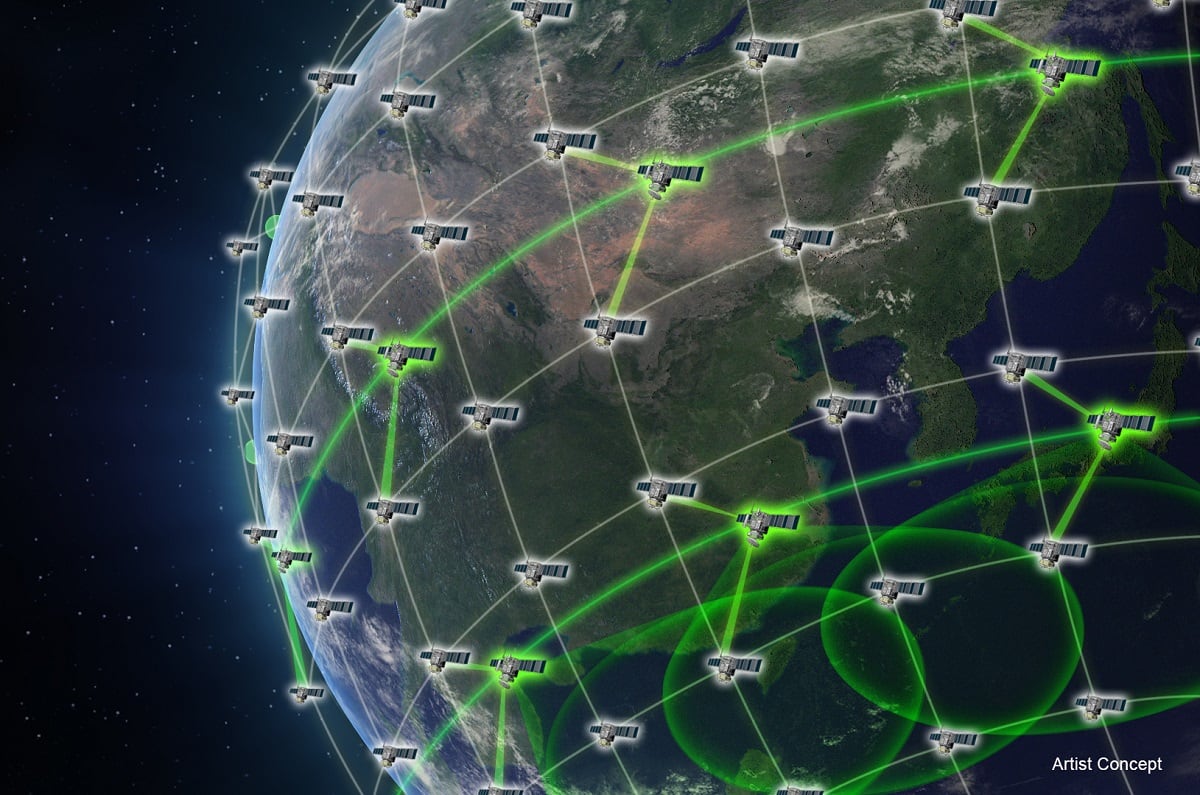WASHINGTON — Raytheon Technologies has completed the acquisition of space electronics provider SEAKR Engineering, the company announced Nov. 29.
The Colorado-based privately-owned company is now a wholly-owned subsidiary of Raytheon Technologies, reporting to its Raytheon Intelligence & Space business. According to the announcement, SEAKR Engineering brings 540 employees to the company.
SEAKR Engineering is the primary contractor for Pit Boss, the autonomous mission management system that will drive the Defense Advanced Research Projects Agency’s Project Blackjack. Project Blackjack will use about 20 demonstration satellites to show the value of a proliferated low Earth orbit constellation to various Department of Defense missions, taking advantage of commercial off-the-shelf satellite technologies.
Pit Boss is effectively the brains of Project Blackjack, automatically taking the data collected by space-based sensors, processing it on orbit, and then sending it to the appropriate system or user back on Earth. Pit Boss will also be able to augment position, navigation and timing data, facilitate space-to-surface communications and more.
In March, DARPA awarded SEAKR $60.5 million for phases two and three of the Pit Boss program, with work expected to be completed in March 2022.
Raytheon is also working on Project Blackjack, having been awarded $37 million in 2020 to build Overhead Persistent Infrared (OPIR) sensors for satellites. Those sensors will be integrated with both the satellite buses and the Pit Boss system.
SEAKR Engineering isn’t the only company working on Project Blackjack that Raytheon Technologies has acquired in the last year. In December 2020, it purchased Blue Canyon Technologies, which was awarded $14 million to build the buses for Project Blackjack and $16 million for payload contributions. The two acquisitions mean Raytheon is now contributing the bus, the mission management system and multiple payloads for Project Blackjack.
However, Project Blackjack remains a DARPA demonstration, not a program of record. Raytheon has failed to win major contracts with either of the official low Earth orbit satellites systems that appear set to carry on Project Blackjack’s legacy: the Space Development Agency’s National Defense Space Architecture and the Missile Defense Agency’s Hypersonic and Ballistic Tracking Space Sensor. While Raytheon Technologies was one of four companies initially awarded $20 million to develop HBTSS, the Missile Development Agency only selected L3Harris Technologies and Northrop Grumman to build on-orbit demonstrations. L3Harris won a $122 million award, while Northrop Grumman was awarded $155 million in that competition.
When SpaceX and L3Harris — two companies that had not built missile warning satellites before — beat out Raytheon in the competition to build the Space Development Agency’s first missile warning satellites last year, the company filed a protest with the Government Accountability Office. A stop-work order was put in place temporarily, but the contracts — worth $149 million and $193 million, respectively — were ultimately confirmed by the Space Development Agency after a reevaluation.
The purchase of two major Project Blackjack contributors could represent an effort to make Raytheon a more attractive contractor for future lucrative contracts for proliferated low Earth orbit satellite systems, capable of offering a holistic package of buses, payloads and mission management systems. However, the company did not suggest in its announcement that was its thinking in purchasing SEAKR Engineering. And Blue Canyon Technologies has secured DoD contracts outside of Project Blackjack, most recently winning an award from the Air Force Research Laboratory to build a cislunar micro-satellite.
“Today’s growing space market demands greater innovation, technological expertise and ability to deliver to a higher space standard faster,” said Raytheon Intelligence & Space President Roy Azevedo in a statement. “SEAKR Engineering provides depth and strength across all these areas with a portfolio of proven space electronics and a forward-leaning culture of commitment, and we welcome them to the RI&S team.”
Raytheon did not reveal how much it paid for the acquisition.
Nathan Strout covers space, unmanned and intelligence systems for C4ISRNET.








